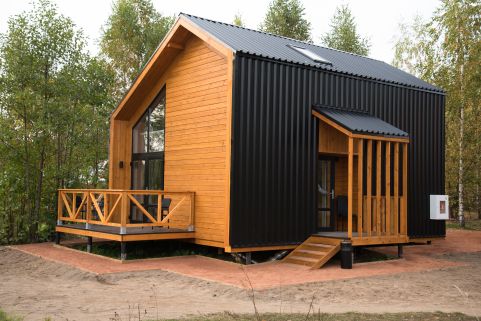It is quite an exciting time to be living in Vermont. The tiny house movement has really taken off in the Green Mountain State, and now there are hundreds of small houses on the ground
This article will cover three things you should do before building a small house in Vermont.
Understand the Landlord-Tenant Laws
Before you move to a new state and start building your tiny house, you must understand the landlord-tenant laws of that state. As we all know, every state has different rules, so it is best to research what those laws are before you move there.
Many resources are available online that can help you understand your landlord-tenant rights in your new state.
If you plan to buy property from someone, you must understand their rental agreement and other contracts they may have with their tenants (like lease agreements).
Consider What Type of Property You Want to Live In
Once you understand the landlord-tenant laws in your new state, it is time to consider what type of property you want to live in. Three unique properties can be used for tiny houses: free land, mobile homes, and homes on the ground with a permanent foundation.
If you are looking for free and clear land, you should look into the county records office to see if there are any free and clear properties in your area. In addition, there may be many good options available that are listed online or by other tiny house enthusiasts.
You can also call the real estate agents who represent these properties or search online for “free and clear lots” in your area.
Suppose you plan on living in a mobile home or home on a permanent foundation. In that case, it is essential that you research which types of property will allow you to build a tiny house legally.
It is also vital to research which zoning laws apply to your property type. For example, some zoning laws will require you to make a small house in a certain way, while others will allow you to build your tiny house in whatever way you want.
There are many different resources available online that can help you understand the zoning laws of your new state.
Find Out What Materials You Can Use
Once you have decided what type of property you want to live in, it is time to research what materials are allowed for your tiny house.
Many online resources can help you understand what materials are allowed and which aren’t allowed in each state (like building codes).
You can also contact the building inspector or zoning department of your town or city to ask them what they recommend regarding building materials on your property type.
Conclusion
If you are planning on building a tiny house in Vermont, you must do your research before building.
You should consider what type of property to live in, what zoning laws apply to your property type, and what materials are allowed for your tiny house.
By understanding these things before you build anything on the land, you will be able to make a small house in Vermont with peace of mind.


